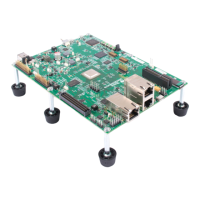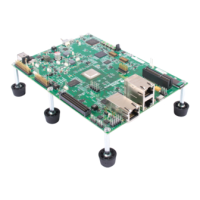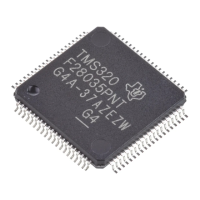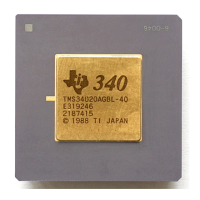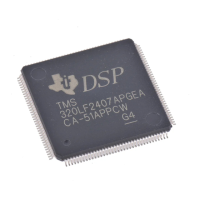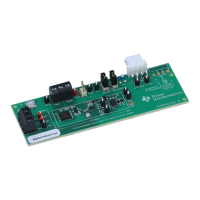Slot 1Slot 0 Slot N−1
Slot M
Slot N+1
EDMA event
for slot 0
EDMA event
for slot 1
EDMA event
for slot N − 1
EDMA event
for slot N
EDMA event
for slot N + 1
Slot 1 Slot 2 Slot N
Slot N
EDMA event
for slot 2
EDMA event
for slot M
Active slot
Inactive slot
Slot N−2
Slot 0 Slot M−1
Initialization
period
(A)
EDMA event
for slot N + 2
Initialization
period
(A)
Functional Description
www.ti.com
22.3.8.2.1 TDM Time Slots
TDM mode on the McASP can extend to support multiprocessor applications, with up to 32 time slots per
frame. For each of the time slots, the McASP may be configured to participate or to be inactive by
configuring XTDM and/or RTDM (this allows multiple processors to communicate on the same TDM serial
bus).
The TDM sequencer (separate ones for transmit and receive) functions in this mode. The TDM sequencer
counts the slots beginning with the frame sync. For each slot, the TDM sequencer checks the respective
bit in either XTDM or RTDM to determine if the McASP should transmit/receive in that time slot.
If the transmit/receive bit is active, the McASP functions normally during that time slot; otherwise, the
McASP is inactive during that time slot; no update to the buffer occurs, and no event is generated.
Transmit pins are automatically set to a high-impedance state, 0, or 1 during that slot, as determined by
bit DISMOD in SRCTL[n].
Figure 22-21 shows when the transmit DMA event AXEVT is generated. See Section 22.3.10.1.1 for
details on data ready and the initialization period indication. The transmit DMA event for an active time slot
(slot N) is generated during the previous time slot (slot N - 1), regardless if the previous time slot (slot N -
1) is active or inactive.
During an active transmit time slot (slot N), if the next time slot (slot N + 1) is configured to be active, the
copy from XRBUF[n] to XRSR[n] generates the DMA event for time slot N + 1. If the next time slot (slot
N + 1) is configured to be inactive, then the DMA event will be delayed to time slot M - 1. In this case, slot
M is the next active time slot. The DMA event for time slot M is generated during the first bit time of slot
M - 1.
The receive DMA request generation does not need this capability, since the receive DMA event is
generated after data is received in the buffer (looks back in time). If a time slot is disabled, then no data is
copied to the buffer for that time slot and no DMA event is generated.
Figure 22-21. Transmit DMA Event (AXEVT) Generation in TDM Time Slots
A See Section 22.3.12.2, step 7a.
3790
Multichannel Audio Serial Port (McASP) SPRUH73H–October 2011–Revised April 2013
Submit Documentation Feedback
Copyright © 2011–2013, Texas Instruments Incorporated
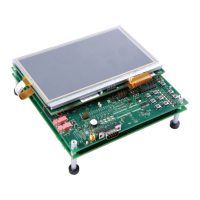
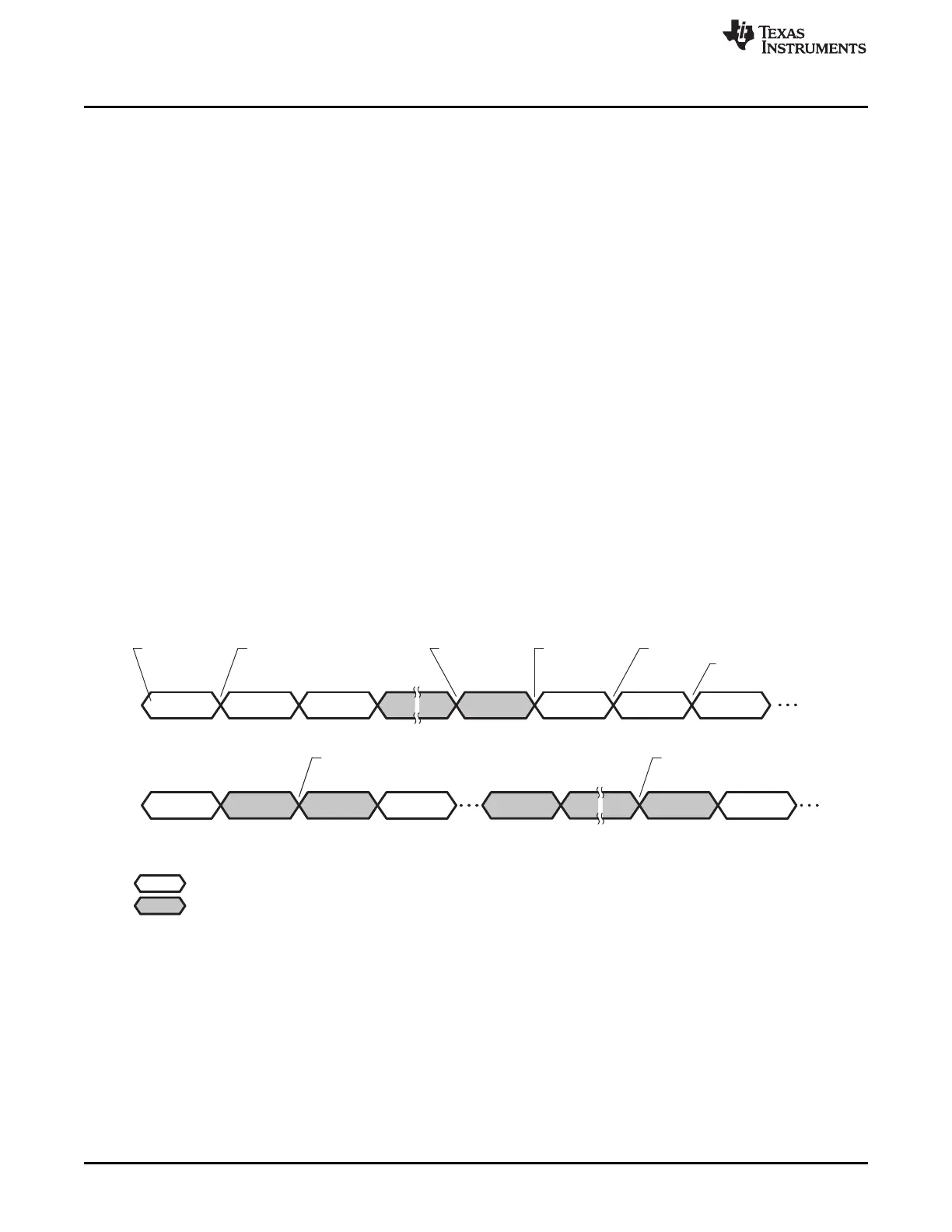